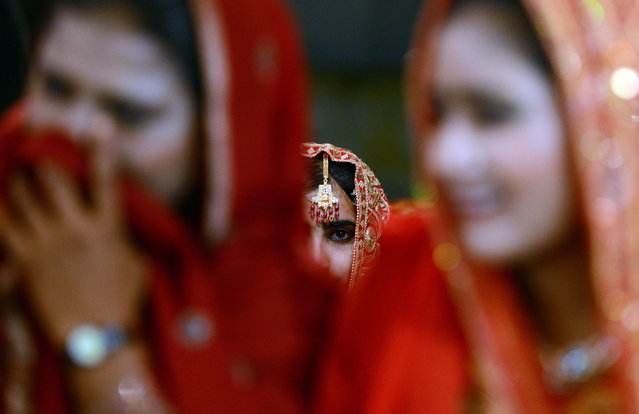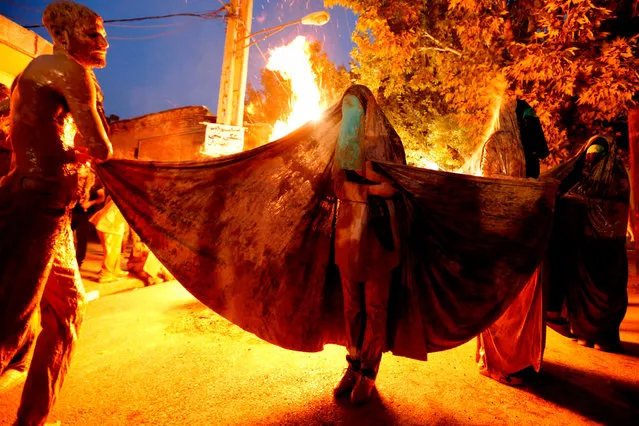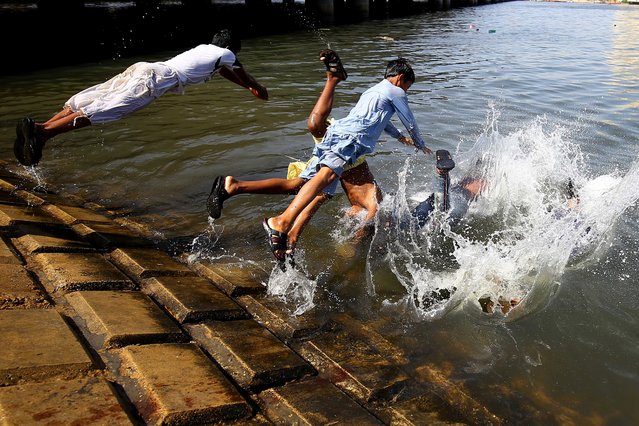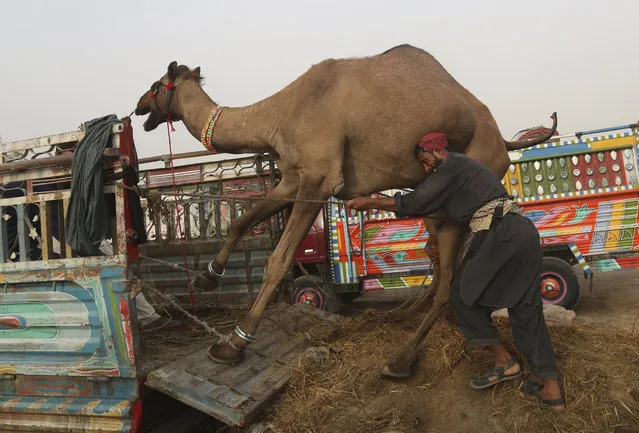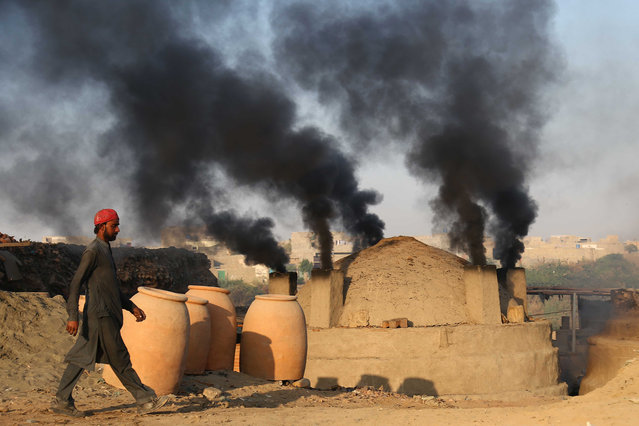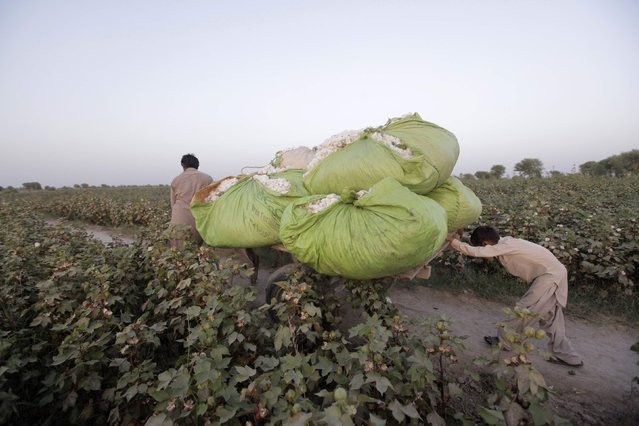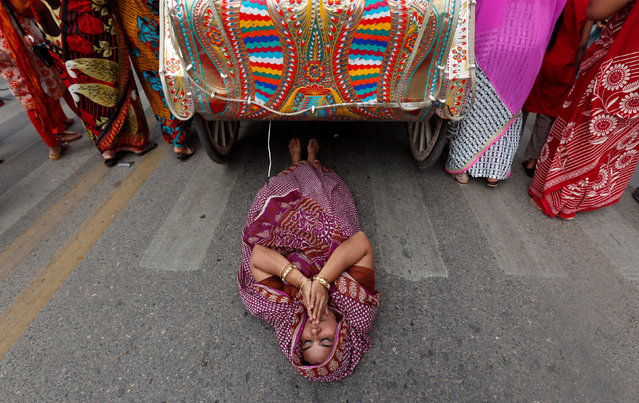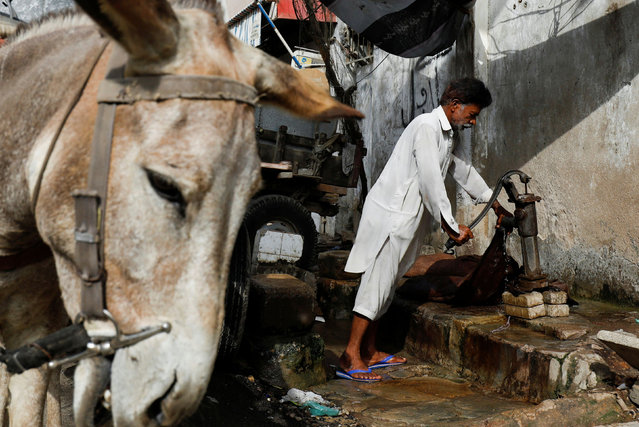
Mohammad Ramzan, 60, a traditional goatskin water carrier also known as a mashki, fills a bag with water from a handpump to deliver to nearby homes during the fasting month of Ramadan, as the outbreak of the coronavirus disease (COVID-19) continues, in Karachi, Pakistan on April 23, 2021. (Photo by Akhtar Soomro/Reuters)
29 May 2021 09:06:00,post received
0 comments

